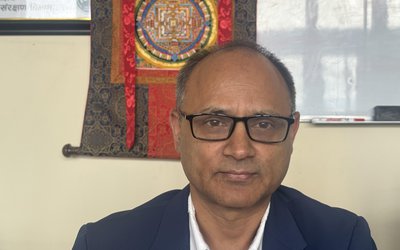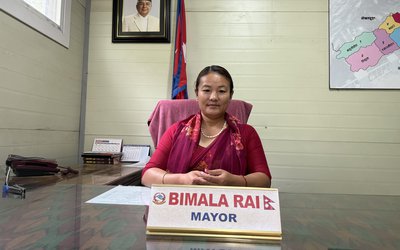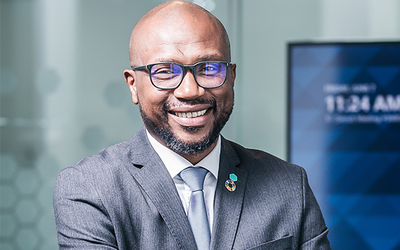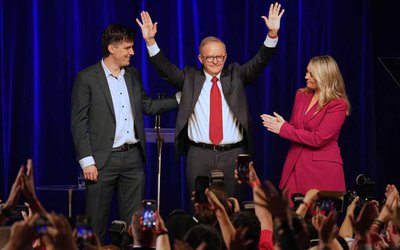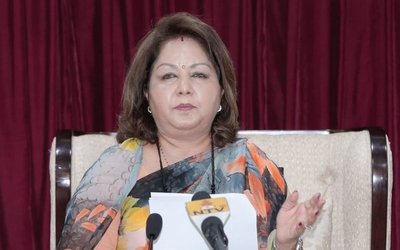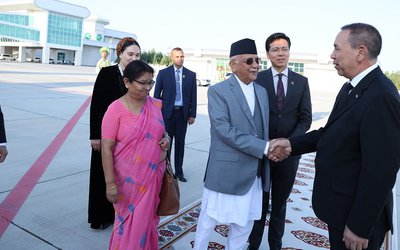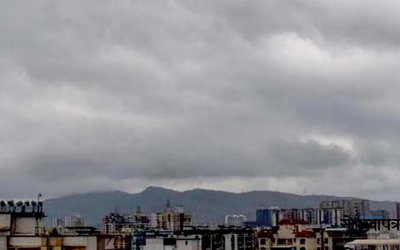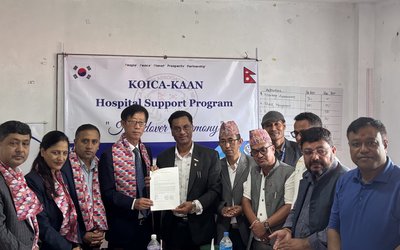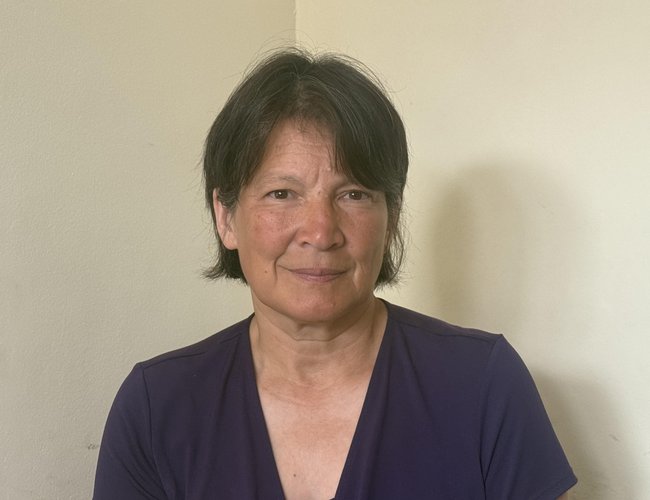
Professor Tami Bond holds the Walter Scott, Jr. Presidential Chair in Energy, Environment, and Health at the University of Colorado in the US. She has conducted extensive research on technologies, atmospheric chemicals, and climate, focusing on the relationship between technology and human choices. Her work ranges from studying particles at a microscopic level to analyzing national transportation systems to understand the interaction between humans, energy use, and the atmosphere and climate. Professor Bond recently visited Nepal and participated in a Knowledge Dissemination Workshop on Agency, Energy, Voices, and Power: A Knowledge Exchange organized by MinErgy and CHeRN. During her visit, Professor Bond discussed various energy-related issues and project with New Spotlight. Here are some excerpts:
The Nepal government aims to develop over 200 Municipal Energy Plans (MEPs) to achieve the country's commitment to zero emissions by 2045 through its Nationally Determined Contributions. How does your project support this effort and ensure the success and inclusivity of MEPs?
I have been involved in Nepal's energy sector for over 15 years and have visited the country regularly. I have observed many initiatives that have been started but not completed. As a researcher, I have been trying to understand why so many projects remain unfinished. My analysis suggests that Nepal faces challenges in allocating sufficient resources to these initiatives, leading to their lack of progress. My colleagues at Mnergy and other organizations are working to address this issue. One crucial aspect is ensuring that communities take ownership of the plans and interventions provided to them. By promoting community ownership, we aim to bring about positive change and improve the success rate of projects in Nepal. Our research findings can contribute to enhancing the current state of energy planning in Nepal.
How do you approach your work?
We follow a method of agency-based empowerment, which focuses on empowering individuals by helping them awaken to their own perspectives and understanding of themselves, their world, and their environment. When outsiders interact with individuals, they are responding based on their own perspectives. Our goal is to enable people to make choices that lead to long-lasting results. If a community does not choose a project for themselves and it is imposed by outsiders, it is likely to fail. In this case, our project aimed to make the Municipal Energy Plans (MEPs) of two Rural Municipalities in Doti and Dadeldhura inclusive and owned by the community. Despite the requirement for women and representatives from marginalized groups to be involved in the planning process, many participants did not speak up as they were unfamiliar with the agenda and lacked experience in expressing their opinions. Without their input, the community felt disconnected from the plan.
What is the objective of the project?
Our objective is to engage the community in the planning process and gather their input to demonstrate that the plan is for them and by them. We do not alter the energy planning process itself, but rather work with the community to ensure that they recognize their own capabilities and have a say in shaping the plan.
What is the objective of the MEP project?
One of the key objectives of the MEP project is to promote ownership. It is crucial for individuals to feel a sense of ownership in the decision-making process and the implementation of projects in order for them to be sustainable. It is important for government bodies to be transparent and open in their implementation efforts and to listen to the voices of the people to ensure effectiveness. The process should encourage people to freely express their opinions and empower them to do so, with a focus on active listening. In our current practices, there is a tendency to push forward without truly listening, which is a common issue not limited to the energy sector in Nepal but seen in various institutions where communication is lacking.
Why did you select two rural municipalities in Sudurpaschim, Nepal?
We selected Adarsha Rural Municipality and Jorayal Rural Municipality in Doti, Sudurpaschim Province because they lacked a plan for development. We also chose another nearby municipality with similar demographics and a plan for comparison, Nawadurga Rural Municipality in Dadeldhura. The Alternative Energy Promotion Center (AEPC) has a nine-step planning process for MEP, to which we added three additional steps. By selecting municipalities with similar characteristics, we aim to have a more controlled and comparable process. This project also focuses on understanding the behavior of the people, which is a critical component for the successful implementation of projects.
Women are essential stakeholders in the use, consumption, and collection of resources. Their involvement is crucial for the success of any initiative. What has been your experience in Doti and Dadeldhura?
Yes, women are often more involved in tasks related to energy use. How can we ensure that the process is inclusive of those who are directly involved in the work and those who stand to benefit from it? It is important to amplify their voices in order to achieve sustainable outcomes. This not only makes women's lives easier but also ensures that the chosen technology is accepted by the community.
What are the differences in choices between men and women?
In my observation, when men are in charge of planning, there is a tendency to prioritize technology without considering women's preferences. This trend is evident in the two municipalities and is a common issue in other areas as well. The decision-making process should not be a simple binary of women versus men, but rather a recognition of the diverse needs of different groups. It is essential to understand how technology can meet the daily needs of the people who use it, which may not always align with the perspectives of those in power. For example, individuals in positions of authority may not fully grasp the challenges of integrating energy use with tasks like fetching water, caring for animals, and irrigating land, which are essential for many others in the community.
As we wrap up this project after two years of work, what have we learned?
One successful aspect, in my opinion, is that people are able to speak up through the exercises that the MinErgy team has implemented to amplify their voices. During these exercises, many individuals have spoken up, which has been a consistent theme not only over the past two years but over the past eight years of our collaboration with MinErgy. People have been able to voice their opinions and be heard when the time is right for openness. Even marginalized individuals have felt empowered to speak up. This is something that we need to continue working on - empowering people to speak up and understand the importance of their energy needs.
Human behavior plays a crucial role in the planning and implementation processes. Is it easy to manage?
Since 2016, we have been working closely with Mnergy. During my first visit to Nepal, I focused on observing cooking stoves without measuring which one was better. My work at that time was centered around understanding technology and human behavior in the context of global stoves to find the best solution. What we discovered was that without understanding the behavior of the people who would be using these stoves, we could not make significant progress.
What is the reason behind people's preference for stoves?
The liking for stoves varies among individuals and is based on personal choice. Some may prefer traditional stoves while others may not. Certain individuals may prioritize energy-efficient stoves for water pumping. When implementing the emPOWER* Approach, it is essential to consider the alignment between people's preferences and the products offered. This ensures better outcomes and addresses technical and repair challenges effectively. Regarding the implementation of the emPOWER* Approach in project areas, we have successfully integrated this approach. The agency-based empowerment strategy has demonstrated positive outcomes in the short term and has effectively reduced gender biases. Sustainable and clean energy solutions are crucial for enhancing the quality of life in these regions. Empowering marginalized voices and promoting inclusivity are key aspects of our approach and motivation.
Did you also participate in the discussion on agency, energy, voices, and power at the Knowledge Exchange Dissemination Workshop? What are your thoughts on it?
The workshop was held after the project was completed, and the discussions were engaging. The outcomes aligned with our emPOWER* concept for community empowerment. The MinErgy team, led by Usha Maskey Manandhar, collaborated closely with the community to ensure the project's success. It was a collective effort from our team and the community that made the project successful.
- Diplomatic Efforts On For Search, Rescue Of Nepalis Missing In Uttarakhand Floods: Minister Rana
- Aug 08, 2025
- PM Oli Expresses Sorrow Over Flood-Triggered Loss In Uttarakhand, India
- Aug 08, 2025
- Prime Minister Oli To Return Home Today
- Aug 08, 2025
- Monsoon's Influence To Prevail Across The Country Today
- Aug 08, 2025
- KOICA-KAAN Supported Primary Hospital, Thankot Worth NPR 14,04,895
- Aug 07, 2025
